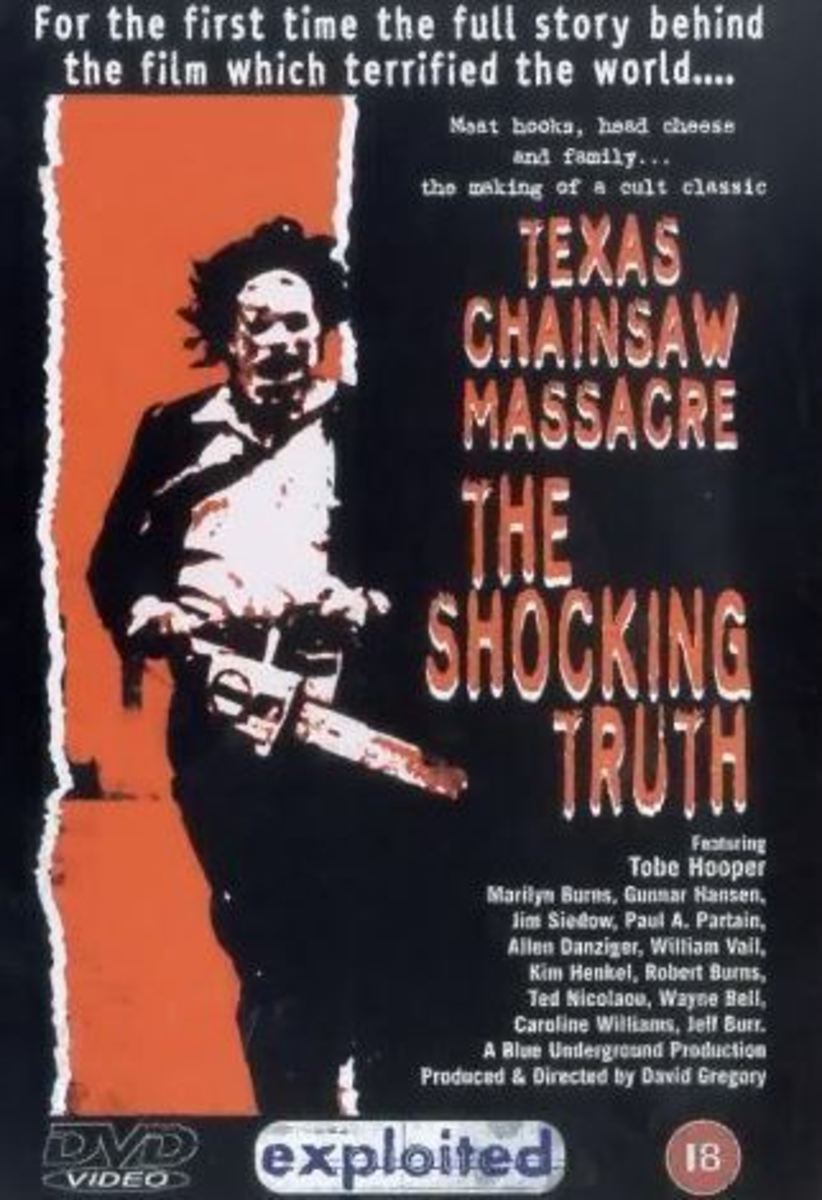Five Classic Movies That Couldn't Get Made in Today's Hollywood
The Pictures Have Changed...
Let's face it, it just costs way too much money to make a movie these days. Currently, the big budget blockbusters that have come to dominate the industry cost at least 80 to 100 million dollars to make; and that's dealing with production costs alone. With the average franchise film it could cost anywhere from 30 to 40 million dollars to promote the film as well.
With all these high costs, the studios that shell out this kind of cash to get movies made have to see extremely high box office earnings in order to see a return on their investment. A movie has to make back it's budget plus half of that just to break even so turning a profit on movies these days means getting the biggest box office results possible.
Today, movie studios have to play it safe. They can only make movies they are sure will make a huge profit and that means putting out movies that already have an audience. And so this explains why Hollywood currently has an obsession with three types of movies: Sequels, Remakes, and Adaptations. These films have a proven audience and the studios can justify spending hundreds of millions of dollars on making and marketing them.
The studios can not, however, justify spending a lot of money on a risky film that may be too different for current audiences. The content of action movies, super hero films, movies based off of young adult novels and horror pictures tend to sale well. But people dramas, dark comedies, and films with unusual content are just too risky for the major studios and usually these films will be made by independent filmmakers.
Here are five award-winning classics that would be too risky for a studio to make today.
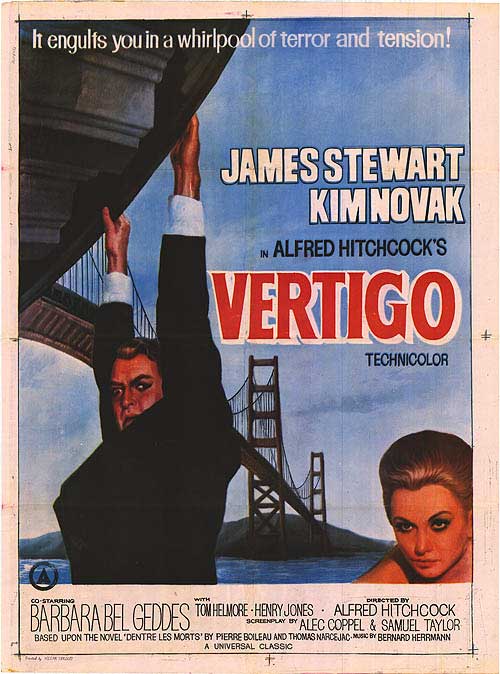
Vertigo (1958)
Vertigo is a classic Alfred Hitchcock film that is currently considered one of the greatest films of all time, a recent poll by Sight and Sound magazine ranked it above Citizen Kane. However at the time of it's release it received only modest reviews. Despite this, it was a commercial success although it often confuses audiences with it's extremely complex plot. The first half of the film is about a woman who seems to be enamored with a dead relative. Her husband then sends a private investigator to follow her. The P.I. falls in love with the woman after saving her life and tries to figure out why she is obsessed with a dead woman she doesn't even know is her great-grandmother. The second half of the film turns into a hard-to-follow tale of deception and self-deception that is pretty difficult to even try to describe. This movie would be far too complicated in today's Hollywood and it would be interesting to see how current viewers would react to a new film like Vertigo with such heavy psychological elements and intricate storyline.
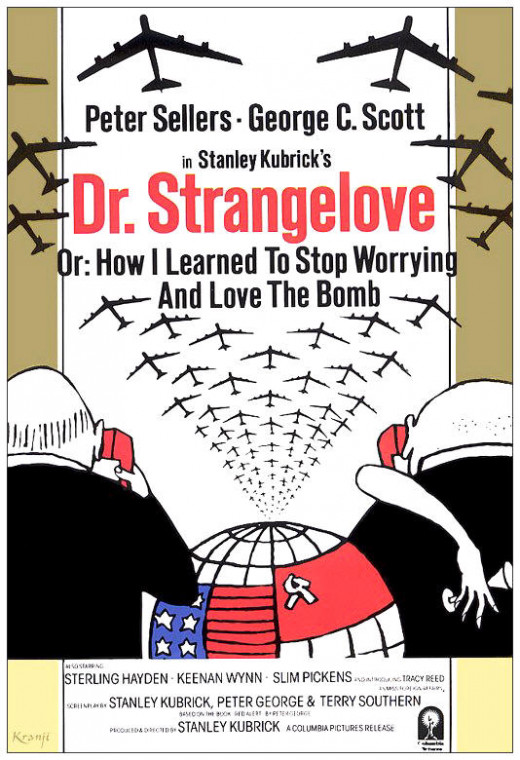
Dr. Strangelove or: How I Learned to Stop Worrying and Love the Bomb (1964)
Dr. Strangelove in a brilliant Cold War-era dark comedy about the systems set up to prevent a nuclear attack on either the U.S. or Russia ironically leading to those attacks to being set in motion. This Stanley Kubrick masterpiece came off as a bit odd to audiences at the time and its satire went over most people's heads. However, critics praised the unique film and it was nominated for an Oscar® for Best Picture. Its lead actor Peter Sellers (who played three different roles including the role of Strangelove himself) was nominated for Best Actor. This would be a hard film to sell today for many reasons. The main reason is that it was a comedy about possible nuclear war. The equivalent today would be a comedy satire film on terrorism, not sure if that would fly.
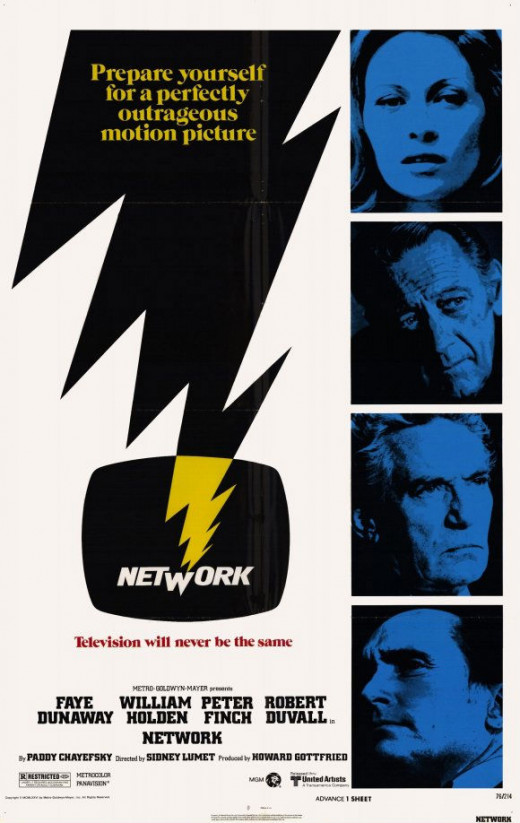
Network (1976)
Network is a satire comedy-drama film about a television network that resorts to displaying some extreme content in order to get better ratings. It also deals with the mental breakdown of a respected news anchor and how he comes to be exploited by the network and its executives for their personal gain. The writing of the film is almost Shakespearean in nature and the performances are both stunning and powerful. The warnings that this film gives about the future of news reporting and the media in general are scary when considering many things they warned about came true. Making this film today would be difficult for any studio. It was an original screenplay, heavy with satire and social commentary and written with dialogue that would confuse most modern audiences. No explosions, no robots, no super heroes, just a story about the power of the media and how dangerous that power is in the wrong hands.
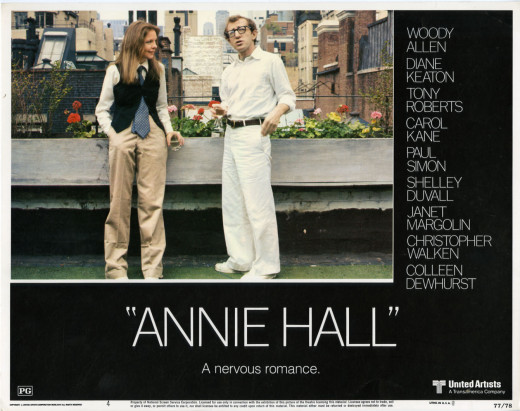
Annie Hall (1977)
Woody Allen's Annie Hall is quite possibly the greatest romantic-comedy film ever made. But it is far different from any standard rom-com you would see today in Hollywood. First of all, the film uses a non-linear format to tell the up-and-down romance between Alvy Singer and Annie Hall. Talking directly to the camera, use of contrasting subtitles, use of animation and several odd, quirky film techniques are just a few of the things that make this picture unlike anything out today. In the 70's a film like this was considered groundbreaking. It won the Oscar® for Best Picture and won Allen two Oscars® for writing and directing the film. However, today a film like this might come across as confusing and as a rom-com it doesn't follow the current standard premise of boy meets girl, boy loses girl, boy gets girl back. Movies today like to hang on the ideal while this film relies on the realistic and therefore the depressing which makes it probably the truest American love story ever told.
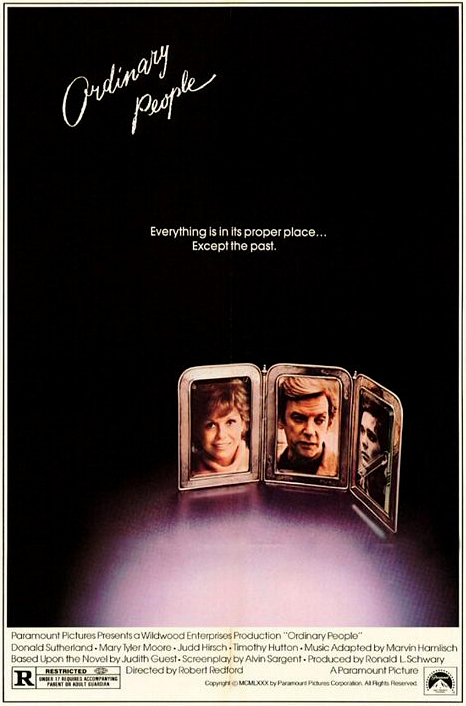
Ordinary People (1980)
A dark family drama, Ordinary People is the tale of the collapsing of an upper-middle class family after the death of one son and the attempted suicide of another son. This film marks the directorial debut of actor Robert Redford and stars television star Mary Tyler Moore in an unexpectedly dramatic role for her. The key problem with a major studio making this film today would be that the subject matter is both too dark and not dark enough if that makes any sense. Take for example the 2013 family drama August: Osage County. That particular film deals with an extremely dysfunctional family that has so many problems it's almost unbelievable. Ordinary People contains a more subtle and gradual reveal of how deep and searing this family's pain is and therefore the film is far more emotionally involved than recent family dramas that are more infused with comedy. The slow pacing, heavy scenes, and personal touch of this film would a bit too much for Americans today and few studios would take a chance on it.


